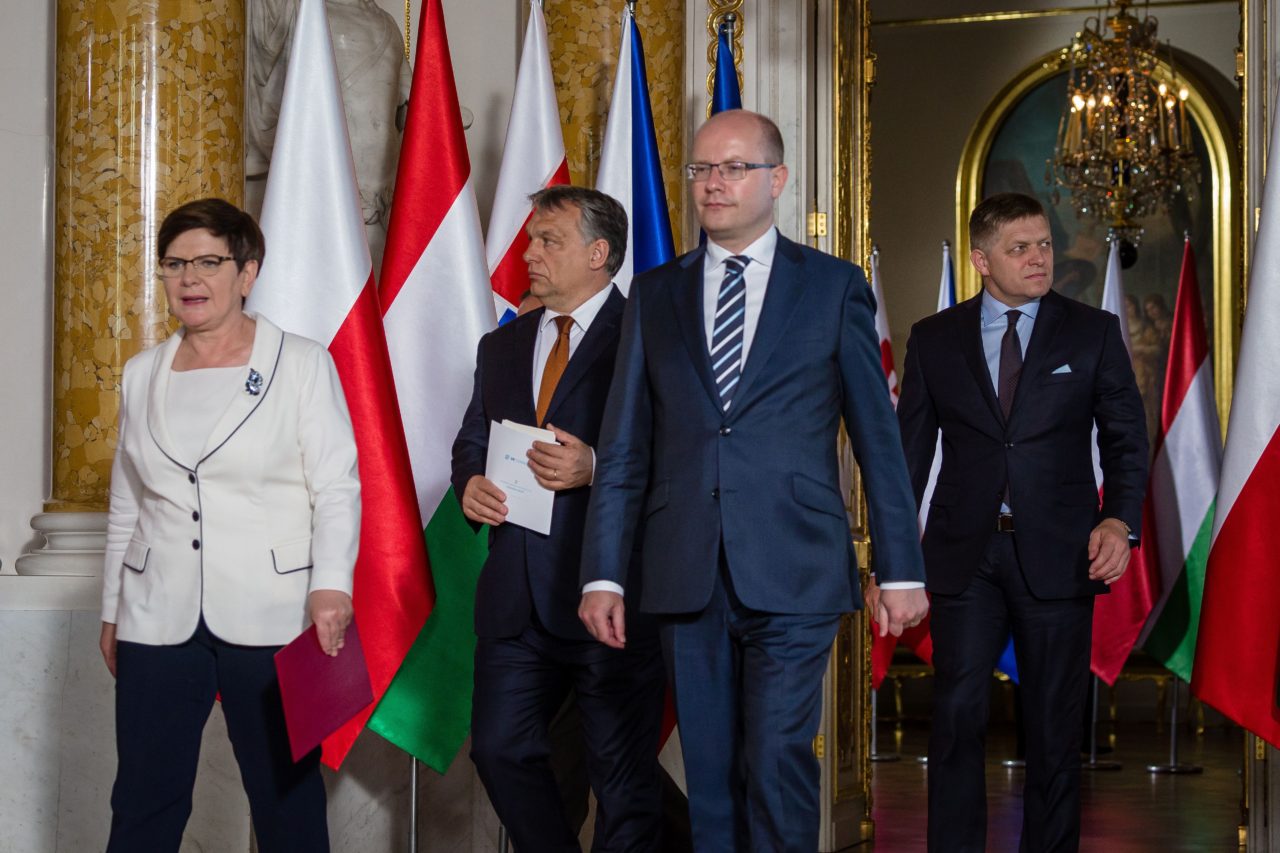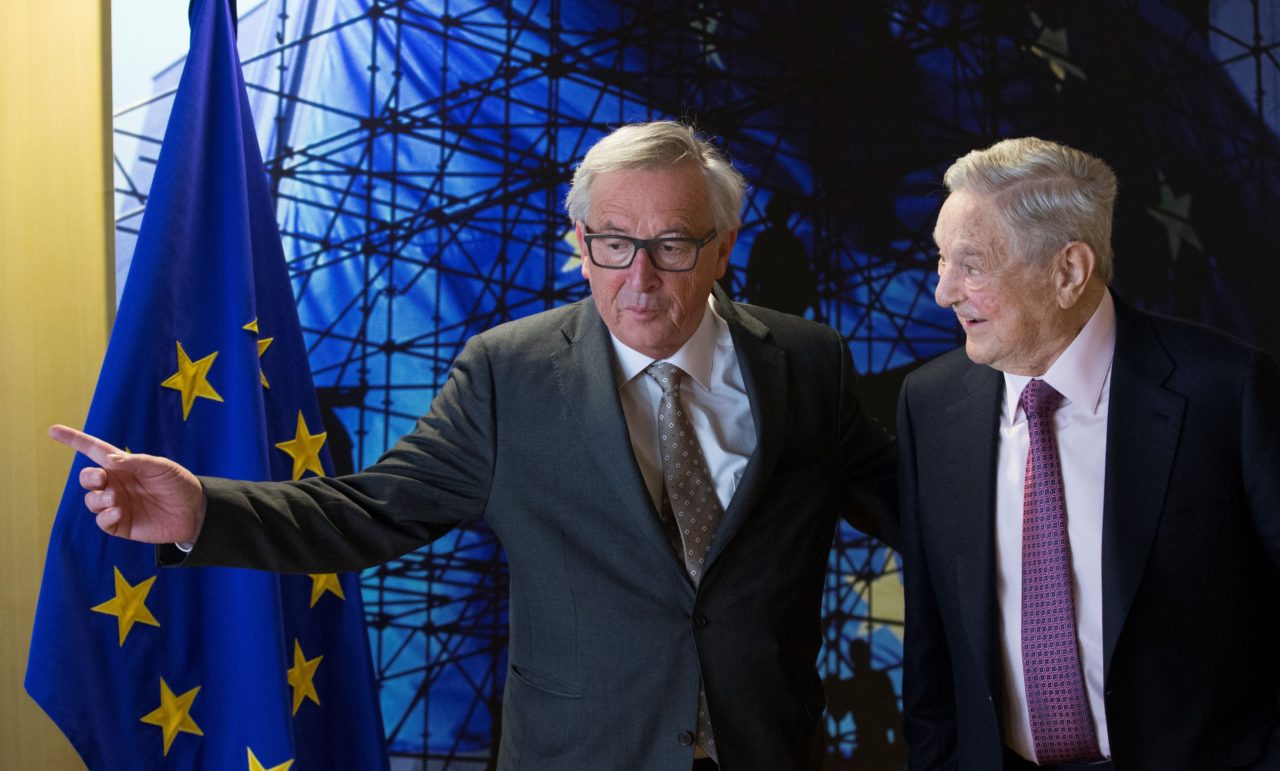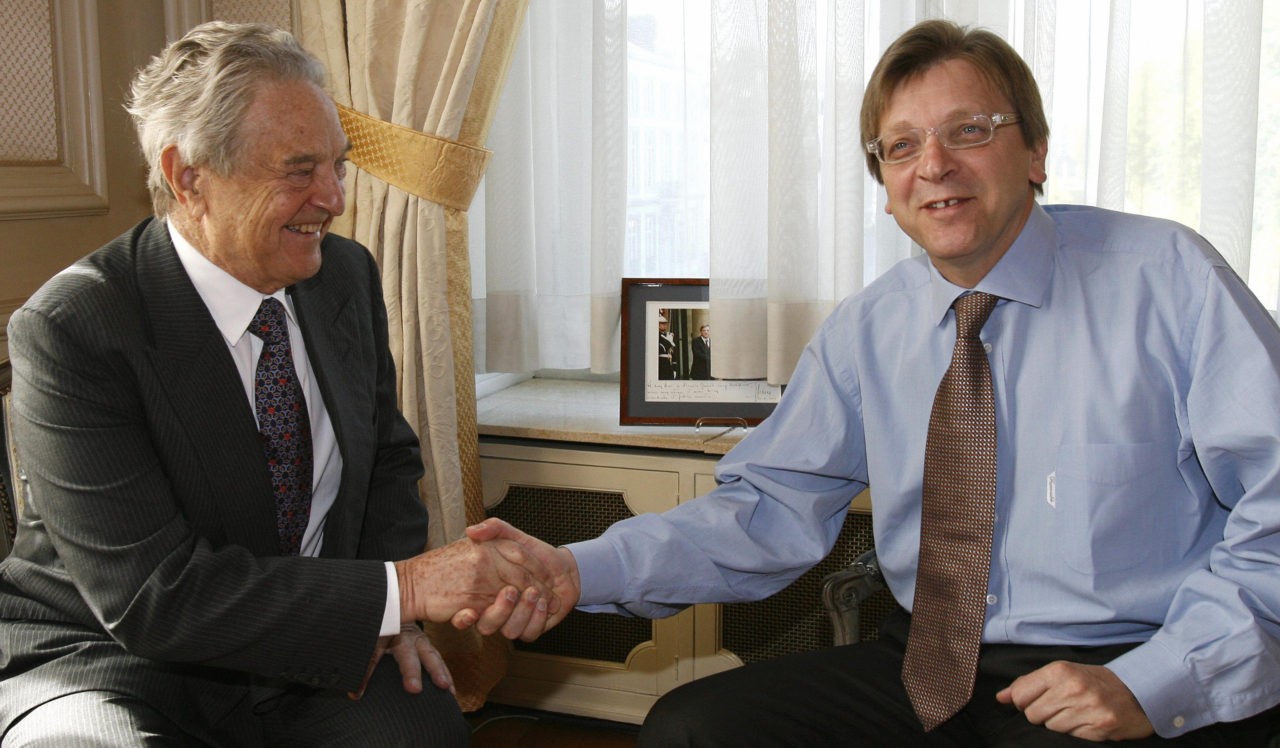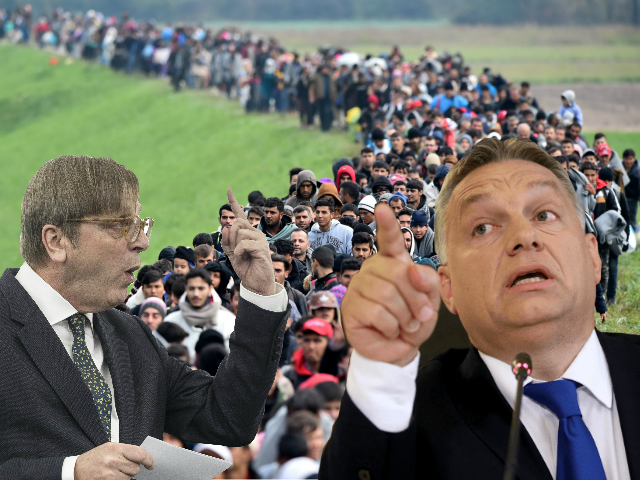The Viségrad nations of Hungary, Poland, the Czech Republic, and Slovakia have been criticised and threatened with sanctions by the progressive, arch-federalist European Union (EU) in 2017.
Refusing to capitulate on issues of sovereignty, faith, culture, and mass migration, they relied on their eastern resilence and rejected the bloc’s censure and demands, opting to put the rights and well-being of their people first.
Here are 10 times Central Europe stood up to the EU in 2017 –
1 – Rejecting the mandatory migrant distribution plan
After the EU threatened political and financial “consequences” for member states refusing to accept Syrian asylum seekers, the then-prime minister of Poland Beata Szydło declared at a summit in March: “The Visegrad group, including Poland, will never agree to blackmail.”
Th European Court of Justice (ECJ) threw out a complaint by Hungary and Slovakia over the migrant quotas in the same week in September that European Commission President Jean-Claude Juncker rejected Orbán’s request for support from the bloc for his border wall. However, neither decision has dented the Viségrad’s resolve.
2 – Opposing managed mass migration from the Third World
Rather than responding to the threat of the next migrant crisis by shoring up the continent’s borders, the EU has opted for a managed mass migration and reforms to its asylum system that Hungarian Prime Minister Viktor Orbán denounced in October as the “institutionalisation of migration and the opening up of the European Union’s external borders” and vowed to stand by Central Europe’s “sensible” migration policies.

Prime Ministers of the Visegrad Group (L-R) Polish Beata Szydlo, Hungarian Victor Orban, Slovakian Robert Fico, and Czech’s Bohuslav Sobotka arrive at the Royal Castle during a meeting of the Visegrad Group Prime Ministers as Hungary takes over the Presidency of the Group in Warsaw, Poland on June 19, 2017. (WOJTEK RADWANSKI/AFP/Getty Images)
3 – Saying ‘no’ to multiculturalism, ‘yes’ to protecting Christian Europe…
The globalist bloc’s commitment to multiculturalism was rejected in August by Poland when Foreign Minister Witold Waszczykowski told the EU that they would accept migration and refugees from culturally similar nations like Ukraine, “[but] we do not want to participate in the mandatory process of relocation of migrants coming from the Middle East and Africa”.
The sentiment was echoed by then-Czech Prime Minister Bohuslav Sobotka who said he did not want the country’s Muslim population to grow: “When we see problems in other European countries, we do not want Muslims in the Czech Republic.”
Then on October 7th, in a spectacular commemoration of the anniversary of the Battle of Lepanto where “the Christian fleet overcame the Muslim armada, saving Europe from Islamisation”, a million Catholics prayed along the Polish border, in what the left-wing media deemed a “problematic expression of Islamophobia”.
4 – …and ‘no’ to the terrorism that comes with mass migration
After witnessing two years of terror in progressive Western EU member states committed by Muslim migrants and asylum seekers, Poland’s Interior Minister Mariusz Błaszczak said in April his government would not allow the “bloody harvest” of multiculturalism to come to its borders.
One month earlier, Hungary’s Orbán called mass migration from the Middle East a “Trojan Horse of terrorism” and denounced the EU Court of Human Rights as “a threat to the security of the European people and an invitation to migrants”.

Israeli Prime Minister Benjamin Netanyahu (L) and his Hungarian counterpart Viktor Orbán give a joint press conference at the parliament in Budapest, Hungary, on July 18, 2017. (KAROLY ARVAI/AFP/Getty Images)
5 – Judicial reforms to clear out the remnants of Communism in Poland
Earlier this month, in spite of threats from the EU, Polish lawmakers overwhelmingly approved a bill changing the appointment process of the judicial panel in an effort to make judges “equal to ordinary people” and not “above them”.
The country’s newly-elected Prime Minister Mateusz Morawiecki said the reforms were necessary to rebalance the corrupt, Communist-era system. The move resulted in the bloc triggering Article 7 of the EU Treaty against Poland.
6 – Transparency of institutions to protect Hungary from foreign influence
In December, the globalist European Commission sued Hungary over her so-called “ongoing assault on political freedoms” after Mr. Orbán’s government passed an education law aimed to ensure fair conditions for foreign universities operating in the country, and a law that requires non-governmental organisations (NGOs) receiving foreign donations to label themselves as “supported from abroad”.
Both laws directly affect the interests of Hungarian-American open borders financier George Soros, who was exposed as having 226 Members of European Parliament listed as ‘reliable’ friends to his Open Society Foundations (OSF).
7 – Committing to a strong, family-based economy that does not need migrant workers
In November, Prime Minister Orbán told an EU social summit that the Hungarian model on the economy and migration is working “and we Hungarians don’t plan on replacing it”, rejecting models touted by Western European countries that the best response to labour market challenges and a declining population is controlled mass migration from the third world.

EU Commission President Jean-Claude Juncker (L) welcomes George Soros, Founder and Chairman of the Open Society Foundations prior to a meeting in Brussels, on April 27, 2017. (OLIVIER HOSLET/AFP/Getty Images)
8 – Standing up to George Soros – the “kingmaker” of the “Brussels Kingdom”.
In April, the Hungarian government launched a national ‘Let’s Stop Brussels!’ consultation to garner the citizens’ opinion on EU policies on migration which the Hungarian prime minister believes are designed by Soros to bring in a million migrants per year to Europe.
Orbán, who referred to Soros as a “speculator operating an extensive mafia network” of NGOs and people traffickers, was denounced by Guy Verhofstadt MEP who called the Hungarian government “disgusting” for “targeting Mr. Soros in person”, claiming anti-Semitic motives (given Soros’s Jewish heritage).
Allegations of anti-Semitism by the Hungarian government have been refuted by Israel’s foreign ministry which released a supportive statement in July, noting that it is important not to “delegitimise criticism of George Soros, who continuously undermines Israel’s democratically elected governments by funding organisations that defame the Jewish state and seek to deny it the right to defend itself”.

Then-Belgian Prime Minister Guy Verhofstadt (R) shakes hands with philanthropist, George Soros, during their meeting 03 May 2007 in Brussels. (BENOIT DOPPAGNE/AFP/Getty Images)
9 – Standing by Israel and President Donald Trump on Jerusalem
After meeting with the Viségrad group in July, Israeli Prime Minister Benjamin Netanyahu found support when Hungary, Poland, and the Czech Republic were amongst the nations to defy EU consensus by abstaining from a UN vote to condemn U.S. President Donald Trump’s recognition of Jerusalem as the capital of Israel in December. Czech President Miloš Zeman stated he also wants to move his nation’s embassy from Tel Aviv to the holy city.
10 – The will of the people, not the will of pro-EU politicians
Before Christmas, Orbán warned EU leaders not to ignore the “natural order of democracy” by denying the will of the people on matters of culture, faith, and migration.
He observed that those politicians who support many of the bloc’s progressive, open borders positions and who argue to “abolish societies based on national and Christian foundations” in favour of living in multicultural societies “are continually losing ground in national elections”.

COMMENTS
Please let us know if you're having issues with commenting.